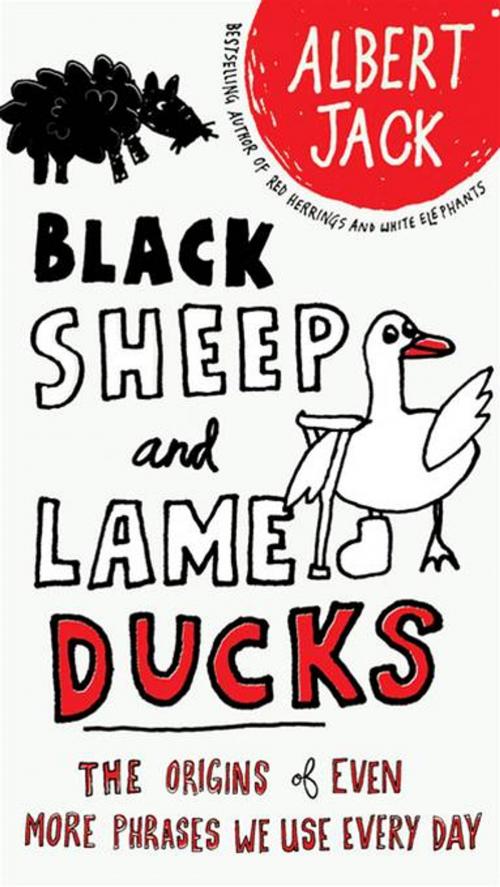Black Sheep and Lame Ducks
The Origins of Even More Phrases We Use Every Day
Nonfiction, Reference & Language, Reference, Almanacs & Trivia, Word Lists, Language Arts, Linguistics, Education & Teaching, Teaching, Teaching Methods| Author: | Albert Jack | ISBN: | 9781101187531 |
| Publisher: | Penguin Publishing Group | Publication: | May 4, 2010 |
| Imprint: | TarcherPerigee | Language: | English |
| Author: | Albert Jack |
| ISBN: | 9781101187531 |
| Publisher: | Penguin Publishing Group |
| Publication: | May 4, 2010 |
| Imprint: | TarcherPerigee |
| Language: | English |
The fun and fascinating follow-up to the international bestseller Red Herrings and White Elephants
Why do people put their "skeletons in a closet," "have a hunch," "get the cold shoulder," "get dressed up to the nines," or "call a spade a spade?" These phrases are used every day, yet most people have little or no idea where most of them come from. In Black Sheep and Lame Ducks, Albert Jack takes readers on a journey through the curious- and often bizarre-origins of hundreds of their favorite idioms and expressions.
For example, "wearing your heart on your sleeve" comes from the Middle Ages, when a lady would "give her heart" in the form of a handkerchief pinned to the sleeve of a knight who was about to go into battle. And calling someone the "black sheep in the family" refers to a thousands- year-old belief that a black lamb in a flock was unpopular because its fleece was undyeable and therefore less valuable.
With Black Sheep and Lame Ducks, any language-lover can feel like a "Smart Aleck"-and also know exactly who that was.
The fun and fascinating follow-up to the international bestseller Red Herrings and White Elephants
Why do people put their "skeletons in a closet," "have a hunch," "get the cold shoulder," "get dressed up to the nines," or "call a spade a spade?" These phrases are used every day, yet most people have little or no idea where most of them come from. In Black Sheep and Lame Ducks, Albert Jack takes readers on a journey through the curious- and often bizarre-origins of hundreds of their favorite idioms and expressions.
For example, "wearing your heart on your sleeve" comes from the Middle Ages, when a lady would "give her heart" in the form of a handkerchief pinned to the sleeve of a knight who was about to go into battle. And calling someone the "black sheep in the family" refers to a thousands- year-old belief that a black lamb in a flock was unpopular because its fleece was undyeable and therefore less valuable.
With Black Sheep and Lame Ducks, any language-lover can feel like a "Smart Aleck"-and also know exactly who that was.















